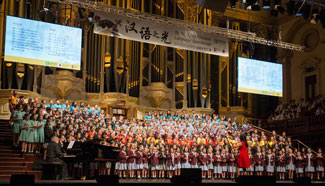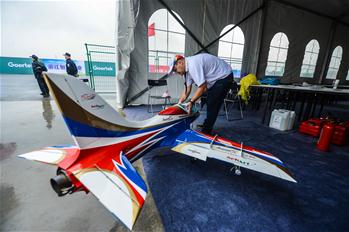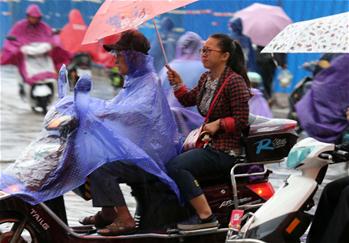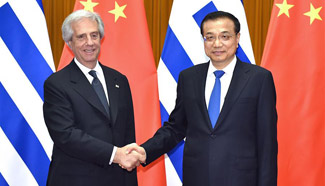QUITO, Oct. 19 (Xinhua) -- Although some countries in the world are frustrated about the influx of refugees and migrants, a United Nations' conference held here Wednesday pointed out that these people make great contributions to the cities they live in like anyone else.
From Germany to Nicaragua, governments are grappling with the issue of how to deal with refugees and migrants escaping warfare, political strife or economic turmoil.
Whatever their migrant status may be, these people contribute to the cities they move in through jobs, taxes, businesses and education, according to the participants of the United Nations Conference on Housing and Sustainable Urban Development, or Habitat III, in Quito.
In a special panel on the role refugees and migrants play in urban development, Ecuador's Deputy Minister of Human Mobility Esther Cuesta said coordinated responses were needed to offer worthy solutions to these people.
"Refugees, internally displaced and stateless people feel attracted by opportunities that cities offer. These people have abilities, talents and aspirations," added Steven Corliss, director of the Division of Programme Support & Management of the UN High Commissioner for Refugees (UNHCR).
These people arrive in cities "in search of the things that most of us take for granted - to move freely and without fear, have a dignified home, find a dignified job to take care of their families, educate their children, see a doctor when they are sick and dare to dream of a better future," said Corliss.
The UNHCR official then spoke of the New Urban Agenda, the protocol that will be approved at Habitat III, which he said would favor joint, integrated responses adapted to specific contexts concerning refugees.
"We are seeing a real and significant convergence between the strategic orientation of UNHCR, the New York Declaration (on Refugees and Migrants, September 2016) and the New Urban Agenda," Corliss said.
Kate Gilmore, UN's deputy high commissioner for Human Rights, highlighted the need to combat discrimination and "humanize" their responses.
"There is no habitat without people. In diversity lies strength, not fear," she said.
Habitat III will conclude on Oct. 20 with the adoption of the New Urban Agenda, a document negotiated over the last three years to provide guidelines for promoting urban policies for the next two decades.










